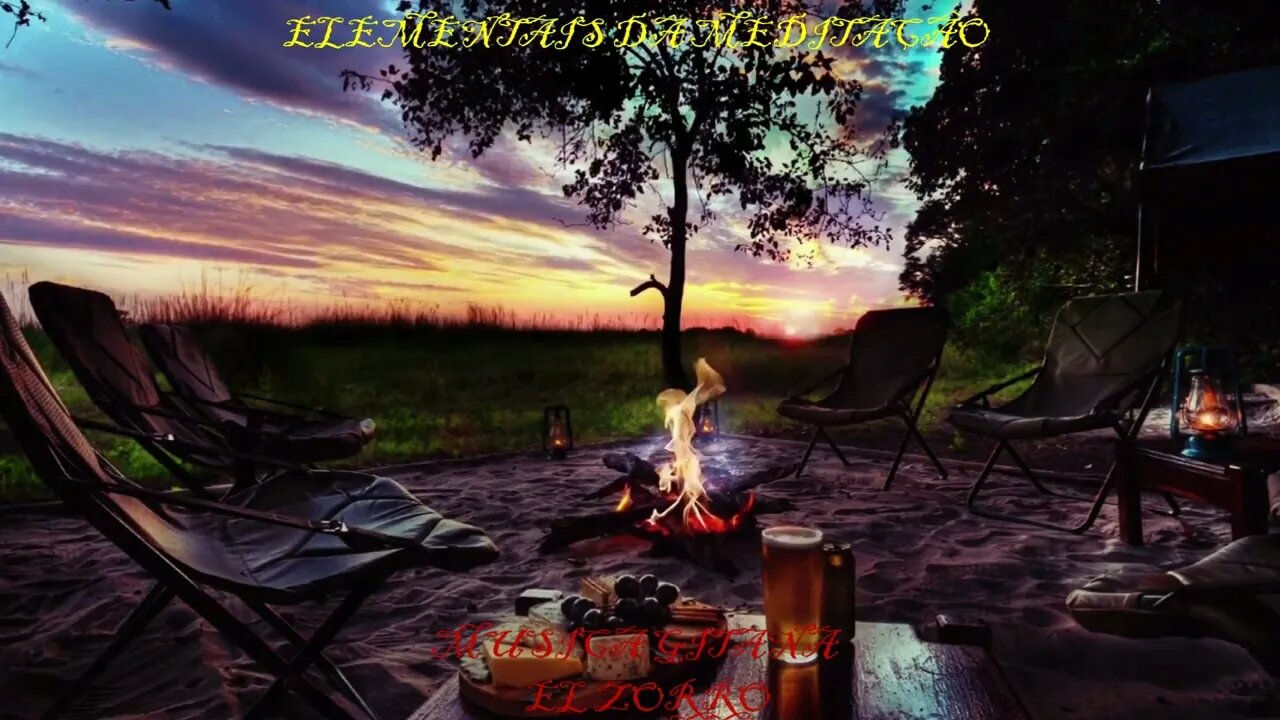Premium Only Content

MUSIC GYPSY - EL ZORRO - MUSICA CIGANA #gypsy #cigana #cigano #astrology
MUSIC GYPSY - EL ZORRO - MUSICA CIGANA #gypsy #cigana #cigano
FREE Personalized Moon Reading
SITE OFFICIAL; https://bit.ly/OFFICIALMOONREADING
SITE OFFICIAL; https://bit.ly/OFFICIALMOONREADING
get your course now; Complete Tarot Course + Gypsy deck + Therapeutic Oracle
SITE OFICIAL; https://bit.ly/tarotbaralhocigano
SITE OFICIAL; https://bit.ly/tarotbaralhocigano
adquira agora seu E-BOOK de meditação
SITE OFICIAL; https://bit.ly/MINHAVIDACOMYOGA
SITE OFICIAL; https://bit.ly/MINHAVIDACOMYOGA
Origin of the Gypsy People
As gypsies do not have a written language, their entire history was written by non-gypsies. For this reason, testimonies are not always free from prejudice.
One of the big questions is to know the place of origin of the gypsies. Currently, India, especially the Punjab region, is considered to be the most likely homeland. From there they would have passed to Egypt, and from there to the European continent.
The first document attesting the presence of gypsies in Spain is from 1423, when they ask for permission to cross the territory in order to make a pilgrimage to Santiago de Compostela.
Where do gypsies live?
The countries where the largest number of Roma live are the United States (1,000,000), Brazil (800,000) and Spain (710,000).
However, countries such as Serbia, Bulgaria, Slovenia and Romania have the highest proportion of Roma in the population.
Gypsy people in Brazil
Gypsies arrived in Brazil with Portuguese navigators. The Portuguese authorities saw in their overseas territories an opportunity to get rid of these individuals who were considered “unwanted”.
Gypsies settled in virtually all of the national territory, especially in Bahia.
gypsy culture
As nomads, the gypsies incorporated habits and customs from the regions where they were. However, it is possible to identify common traits that make up Gypsy culture.
Gypsies ended up exercising trades that could be performed everywhere. Therefore, men were blacksmiths, traders, horse and cattle caretakers.
Within the gypsy clans, women are more restricted to the domestic sphere, but performed jobs as seamstresses, lacemakers and artists. They also dedicated themselves to reading hands and cards to predict the future.
Values such as fidelity to the family and clan, and intermarriage are other striking characteristics that we can observe in all gypsies.
Romani - gypsy language
Gypsies developed the Romani language, also called Romanese.
It is an unwritten language (not written) and taught orally by Roma families. There are ethnic groups who speak it with ease, but others only know a few words.
Likewise, it is forbidden for non-gypsies to learn this language. However, with globalization and the internet, this barrier begins to break down.
gypsy religion
It is important to emphasize that gypsies do not have a religion in the strict sense of the term. They have a set of beliefs and principles, but there is no concrete figure of a god (or gods), nor a religious hierarchy.
The gypsies adopted the religion of the territory where they circulated. In this way we find Catholic, Orthodox, Evangelical, Spiritist and Muslim gypsies.
Among Romany Catholics, there is great devotion to Saint Sara of Kali, who would have been supported by Gypsies in the south of France.
In Umbanda religion there are "gypsy entities" that would be the spirits of deceased gypsies.
gypsy dance
Gypsy dance is the result of a mixture of several elements, but it was in Spain that it gained strength.
Gypsies danced in their camps, at parties, accompanied by musical instruments, singing and clapping. Both women and men danced in the middle of the circle.
In this way, gypsy dance is sensual, strong and quite expressive, as the whole body participates in the movements. Among women there is the custom of dancing barefoot, with long skirts and richly adorned with jewels.
Among all the elements of gypsy culture, flamenco is the most popular worldwide.
They were nomads, in a sedentary society; they had no written laws, at a time when everyone else did. Likewise, despite accepting Christianity, they practiced certain practices condemned by the Church, such as fortune telling.
Thus, all kinds of stories emerged about these people classifying them as cheaters and thieves, as if these attitudes were exclusive to gypsies.
persecution of gypsies
Gypsies were persecuted during the formation of National Monarchies in Europe, as everyone who was not Catholic was expelled. This measure affected Jews and Muslims alike.
During World War II (1939-1845), Roma were persecuted and confined in Nazi concentration camps. It is estimated that 250,000 Gypsies were killed during this period, especially in Croatia,
-
 DVR
DVR
Josh Pate's College Football Show
5 hours ago $1.44 earnedSEC Disaster Saturday | Major CFP Earthquake Coming | Officiating Is A Disaster | New Studio Debut
9.87K -
 DVR
DVR
Adam Does Movies
8 hours ago $2.79 earnedGladiator II Spoiler Conversation With Hack The Movies
14.3K -
 24:10
24:10
Bwian
8 hours agoI Don't Know What I'm Doing in Fortnite, But I Still Won...
11.4K1 -
 19:30
19:30
DeVory Darkins
10 hours ago $37.52 earnedJoe Rogan MOCKS The View as Bill Maher HUMILIATES Woke Scientist
85.8K117 -

Scottish Viking Gaming
12 hours agoSUNDAY FUNDAY | Jump into my Sons of the Forest Game | DOO EET NOWWA!
86.8K1 -
 24:01
24:01
Winston Marshall
4 days agoThe TRUTH About The UK Farmer Protest What No One Is Talking About...
80K170 -
 3:21:56
3:21:56
Tate Speech by Andrew Tate
16 hours agoEMERGENCY MEETING EPISODE 93 - ME TOO!
283K179 -
 3:21:42
3:21:42
FRENCHY4185
11 hours agoPRESTIGE AND CAMO GRIND : BLACK OPS 6
82.5K2 -
 1:29:47
1:29:47
Real Coffee With Scott Adams
12 hours agoEpisode 2669 CWSA 11/24/24
108K41 -
 13:52
13:52
Hershberger's Kitchen
23 hours agoTwo Delicious Dip and Spread Recipes to Try, Inspirational Thought
93K6